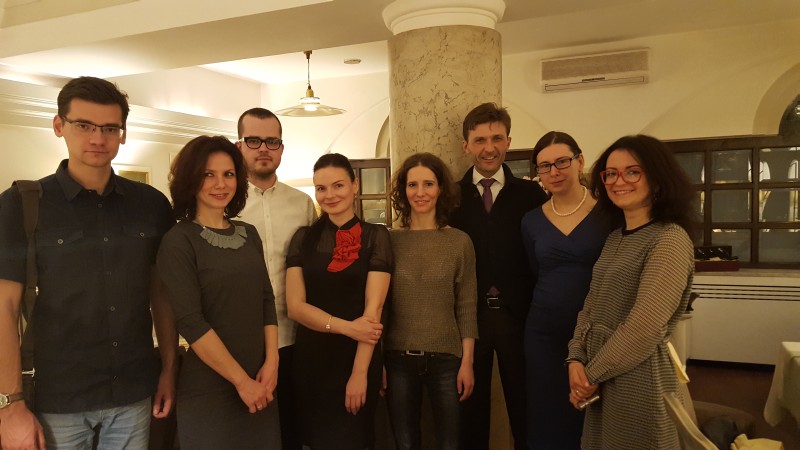Program dates: April 2-9, 2017
The purpose of the program is to learn about B&H efforts, initiatives and experience to promote accountability, provide access to justice and fight corruption using the hybrid court model.
Goals of the program are:
- Learn about B&H efforts in the establishing and applying hybrid approaches to justice
- Learn about operations, maintenance and benefits of the hybrid court in B&H
- Understand how the international and B&H elements of the hybrid court function
- Explore how hybrid court relates to B&H’s law enforcement and judicial institutions
- Observe best practices and lessons learn firsthand from B&H hybrid court
- Discuss perspectives and challenges for establishing hybrid court in Ukraine
 Participants were selected among national level policy makers involved in judicial reform, human rights and anti-corruption, such as:
Participants were selected among national level policy makers involved in judicial reform, human rights and anti-corruption, such as:
- Judges and judicial personnel involved in judicial policy (such as those in the High Qualifications Commission, High Council of Justice, Council of Judges, and other judicial governance bodies), as well as specialized investigative judges from first-instance and appellate courts
- Members of the Ukrainian Parliament and staff, especially members and staff of the Legal Affairs Committee, Anti-Corruption Committee, and Human Rights Committee
- Civil society experts and academics engaged in human rights, judicial reform and anti-corruption reform
- Members of the Judicial Reform Council, including representatives from the Ministry of Justice, Presidential Administration, and other policy-makers
- The Human Rights Ombudsman’s Office
- Attorneys and representatives from the Ukrainian Bar Associations
- Investigators from the National Anti-Corruption Bureau of Ukraine (NABU) and prosecutors from the Special Anti-Corruption Office (SAPO)
The Program consisted of 5 broad parts that reflect the strategy: 1. Introduction (“Short Overview of BiH’s Socio-Political Context”; “Hybrid Approach to Justice: Main Concepts, Issues, Strategies and Case Study – Bosnia and Herzegovina”); 2. Hybrid Approach to Justice in Practice (Visit to the Court of BiH, The Prosecutor’s Office of BiH and High Judicial and Prosecutorial Council of BiH); 3. Panel discussion “Strengths and Weaknesses of the Hybrid Approach to Justice in BiH; 4. Peer to peer work and 5. Lessons Learned and Action Plans (all day training led by Randall Puljek-Shank).

